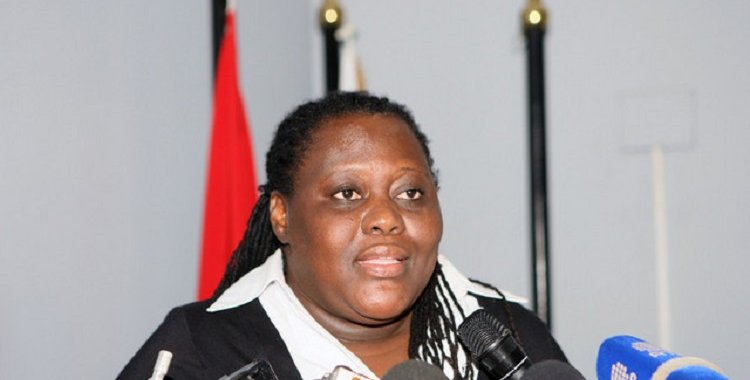In statements to the Lusa agency, Luísa Rogério, also a member of the Executive Committee of the International Federation of Journalists (FIJ), stated that "the freedom of the press" that existed between 2017 and 2019 is not breathed, and stressed that one of its pillars - plurality - is threatened with the passage of control of private bodies to the state sphere.
These are the cases of the TV stations Zimbo and Palanca TV where the journalist and economist Carlos Rosado de Carvalho recently saw his participation in a weekly rubric where he dealt with issues of economy and current affairs and a debate on the business environment in Angola, respectively.
"It was clear and explicit censorship," said Luísa Rogério, stating that the TV Zimbo communiqué on the decision to prevent Carlos Rosado de Carvalho from addressing the allegations concerning President João Lourenço's chief of staff, Edeltrudes Costa, "reinforced" the idea.
"We know that Palanca TV and Zimbo are under the tutelage of management bodies appointed by the executive. The fact is that Carlos Rosado was barred. If there is no other better explanation, I would say that this is censorship," the journalist emphasized, adding that not only organizations representing media professionals, but also the Bar have repudiated the situation.
"I have no evidence [that there have been higher orders or self-censorship] but it's a lot of coincidence. If there's no evidence to the contrary, we're dealing with a practice of censorship," he said, urging channels to invite the economist back, "if there is no censorship.
The head of the Portfolio Commission stressed that the state should find mechanisms to ensure the functioning of private media and said freedom of the press "has substantially diminished since last year," when there was greater participation by different actors in the public space.
One example is that Angolan public television (TPA) has never interviewed the leader of Angola's largest opposition party, UNITA, Adalberto da Costa Júnior, elected last November.
With general elections scheduled for 2022, Luísa Rogério stressed that "the greatest fear" is that private means handed over to the state in July and August will not be reprivatized in the meantime.
"Privatization should happen by 2022, my biggest fear is that this will only happen after the elections and/or if some of the organs like TV Zimbo close, this would be complicated," she continued.
Expressing "sadness" at the "setback", the journalist also questioned the fact that the holders of public offices linked to the current government "are not subject to the same treatment" that has been given to figures linked to the previous regime, led by José Eduardo dos Santos, "who have squandered the public purse.
Overheard by Lusa, the Minister of Telecommunications, Information Technology and Social Communication said "there is no" censorship in the public and private bodies confiscated by the state, claiming that these are "facts that aim to undermine the reforms" of the sector.
"I don't know what we're talking about, we haven't seen anything related to censorship in public or private bodies yet, so this is a matter that has been intentionally developed to undermine all the work that the executive has been doing on media reform," Manuel Homem said.
Without specifying who, in an "intentional way", is trying to sully the actions in progress in the sector he directs, the minister only mentioned that the issue comes from "the part of who has been creating these facts" that the government believes "do not exist".
On Wednesday, journalist Carlos Rosado de Carvalho announced, through his social networks, that he had been barred again on an Angolan television station, this time on Palanca TV, five days after being prevented from addressing the Edeltrudes Costa case on Zimbo TV.
Palanca TV was a private body linked to the former Minister of Social Communication of the former president José Eduardo dos Santos that was under state control.
Carlos Rosado de Carvalho recently accused TV Zimbo, another private body that passed to the state, of censoring his participation in the item Direct to the Point where he intended to address, last Saturday, the allegations related to the chief of staff of President João Lourenço who was allegedly favored, according to a TVI report, in contracts with the Angolan state, having transferred millions of dollars from one of his companies abroad, which were used to buy houses and other luxury goods.
TV Zimbo, Radio Mais and the newspaper O País, all from the Media Nova group, were handed over to the Angolan state at the end of July as part of the process of recovering assets created with public funds, according to the Attorney General's Office (PGR).
The media were held by three strong men of the former President José Eduardo dos Santos, who are now facing justice: Generals Leopoldino Fragoso do Nascimento "Dino", former head of the Communications Service, Hélder Vieira Dias "Kopelipa", former head of the Military House of José Eduardo dos Santos and his former vice-president, Manuel Vicente. The National Asset Recovery Service then handed over the companies to the Ministry of Telecommunications, Information Technology and Social Communication, which appointed a management committee for TV Zimbo.
Palanca TV, a member of the group Interative Empreendimentos Multimédia, which also included Rádio Global and the Audio and Visual Programs Production Agency, passed to the hands of the State on August 28th, within the scope of the asset recovery process constituted with public funds.







